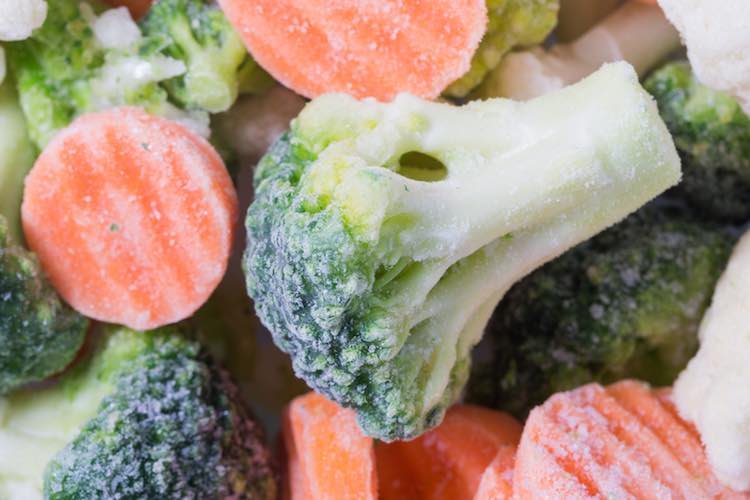A study finds that having convenient frozen fruit and vegetables on hand in the freezer is a way to boost fruit and veg consumption with no trade-off in nutritional quality.
Recent dietary surveys in Australia point to just 7 per cent of people eating the recommended 5 servings of vegetables each day. While just half of Australians have the recommended 2 servings of fruit each day. One possible way to help address the fruit and vegetable consumption gap is to promote ways to make them more accessible and convenient. The limited shelf life of fresh produce can mean that it isn’t always possible to have plenty of it on hand and at home, especially if regular access to a supermarket or greengrocer isn’t possible.
Several studies have found that fruits and vegetables packaged as frozen or even canned are cost-effective and nutritious options for meeting daily vegetable and fruit recommendations in the context of a healthy diet. So the question is, do people who have plenty of frozen produce on hand at home actually eat more fruit and vegetables on average compared to the general population?
Frozen boosts eating
Using food and nutrient intake data from 2 large dietary surveys conducted in the United States, researchers looked at people’s fresh and frozen fruit and vegetable intake. These data were then able to be compared to a whole diet quality across large segments of the population.
People who were regular consumers of frozen fruits and vegetables ate significantly more fruits and vegetables than people who only ate fresh produce. The not-so-good news was that on average neither group of eaters met the recommended number of servings of fruit and vegetables per day.
A consequence of eating more frozen fruit and vegetables was that a person’s diet was overall better. More fibre, potassium, calcium, and vitamin D was consumed, and less salt eaten by people who had frozen produce as part of their diet. The energy intake of people 18 years and under was lower among frozen fruit and vegetable consumers, which is a positive finding considering the rise in childhood obesity rates. Adult eaters of frozen produce were significantly more likely to have a lower body mass index too.
Implications
Frozen fruit and vegetables should be a backup option in the freezers of most Australians. Such foods are a nutritious, cost-effective and convenient way to get more fruit and vegetables in the diet each day.





